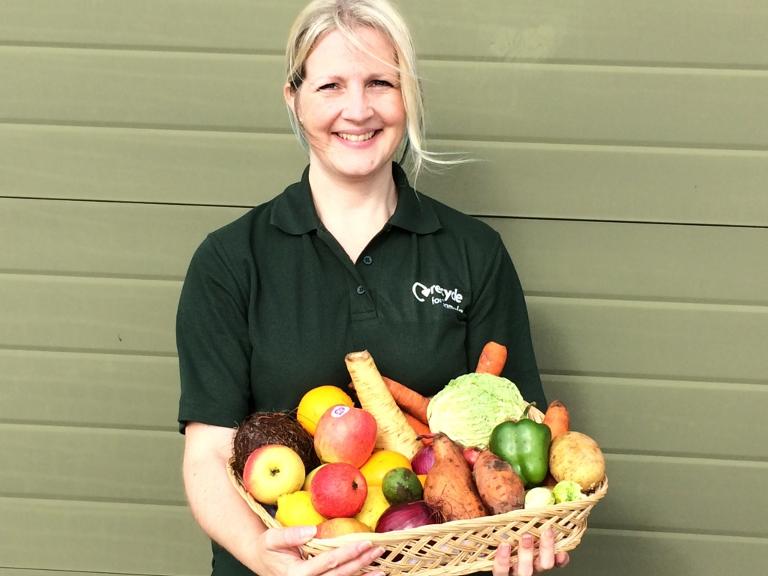Gamesley and Dinting leading the way in food recycling trial

The amount of waste food being recycled in Glossopdale has doubled since a trial began last month - with residents in Gamesley and Dinting leading by example.
A recent study of household food waste by WRAP found UK households binned more than £13b of food waste that could have been eaten - that's an average of £470 per household.
If this food waste was recycled instead of being thrown away it would've saved 19 tonnes of carbon dioxide which is equivalent to the emissions from a quarter of all private car journeys in the UK.
Here in the High Peak waste food makes up over a third of the rubbish we dispose of in our general waste bins even though it can be recycled - that's potentially over 6,000 tonnes of food waste that can be recycled in green lidded bins.
So High Peak Borough Council has teamed up with Derbyshire County Council to launch a trial aimed at helping residents to increase the amount of food recycled.
Around 7,000 households in Glossopdale are taking part in the six-month trial which has seen properties receive either a supply of compostable liners, or liners and a caddy, together with a leaflet reminding them how easy food recycling is.
Nearly 60 tonnes of green waste has been collected from the trial area so far - and 20 tonnes of that is food waste. That's equivalent to 5.5 hippos or 3 T-rex dinosaurs!
Emily Thrane, Executive Councillor for Operational Services, said: "This is a terrific result and I'd like to thank everyone who has embraced this trial for their continued commitment to disposing of their waste responsibly. It's still early days and, on this evidence, I think we can look forward to a very successful outcome when the trial ends next year.
"Recycling food waste benefits us all as it can be composted so the more of it we all recycle, the cheaper it becomes to dispose of our waste. Hopefully, the good habits that people are forming now will be life-long."
All food waste can be recycled, including cooked food and ready meals, and it doesn't matter how small the amount - even a tea bag will make a difference! Food just needs to be removed from packaging before it goes in the liner prior to being put in the green-lidded bin.
The contents of the green-lidded bins are taken to a specialised composting plant in Buxton where, in around seven weeks, it has been turned into compost which is used for soil improvement and landscaping.




